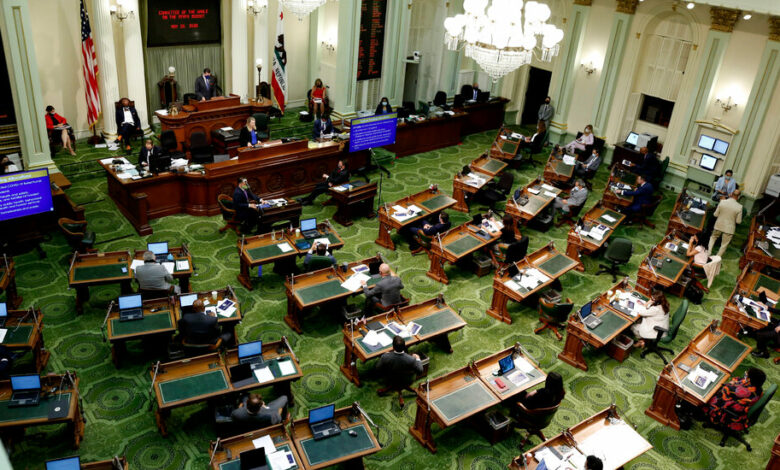California Considers Reparations, Sets Aside $12 Million as Starter

Last year, a California task force released a groundbreaking report calling for reparations for black residents that could run into the hundreds of billions of dollars. But the state’s new $298 billion budget, signed Saturday after a dismal run for California’s finances, offers a much more modest start: $12 million.
The budget doesn’t call for immediate cash payments for Californians whose lives have been shaped by injustices. Instead, it promises some state money if lawmakers approve proposals that advocates see as early steps toward repairing the consequences of California’s past.
The state’s approach has been criticized as offering far too little in the face of a comprehensive, methodical report that exposed a troubling history and made recommendations on how to put it right. Some lawmakers, however, still welcomed the money as a start after the state scrambled to close a $47 billion deficit.
“I thought it was a victory,” Assemblywoman Lori D. Wilson, a Democrat who chairs the Legislative Black Caucus and represents a district in Northern California, said in an interview Saturday. “When we see it in the budget, it means we have been listened to.”
While many state lawmakers have eschewed seeking direct cash payments for now, they have pushed for ideas like creating a California American Freedmen Affairs Agency and prioritizing Black people for professional licenses, “especially applicants who are descended from a person who was enslaved in the United States. .”
On Thursday, the Legislature placed on the November ballot a proposal to amend the state constitution to ban involuntary servitude, even for state prisoners. The measure is part of a recovery package that the Black Caucus announced in January.
Other parts of the Black Caucus package are still awaiting a vote by lawmakers, and the $12 million in the budget could be used to implement ideas that pass before the legislative session ends on August 31.
Some proposals, such as a proposal for a formal state apology for “perpetuating the harms African Americans face through the internalization of racial bias,” have relatively small price tags. One estimate for that proposal put the cost at less than $150,000, a portion of which would go toward a plaque in the state Capitol commemorating the apology.
Other ideas are far more financially daunting. A plan to correct episodes of what the law defines as “racially motivated eminent domain” could ultimately cost state and local governments hundreds of millions of dollars, according to a legislative analysis released Friday.
California isn’t the only place in America where the debate over reparations is bubbling. Chicago Mayor Brandon Johnson this month created a task force on reparations, less than a year after New York created a commission to make non-binding recommendations to state leaders. Evanston, Illinois, near Chicago, has provided housing subsidies to try to move past a legacy of redlining, and a San Francisco task force floated the idea that the city would pay $5 million to each eligible person.
As California officials weigh their options, one challenge is that the Golden State’s previously high-flying finances have cratered after officials significantly overestimated state revenues last year.
For the fiscal year that begins Monday, the state expects to tap about $5 billion of its reserves. The bleak outlook, which comes just two years after the state posted record surpluses, is expected to influence how lawmakers consider proposals related to reparations and nearly every other policy issue that comes up in the coming weeks.
That turmoil, Ms. Wilson suggested, made the $12 million all the more poignant, with state officials “recognizing that there are foundations that need to be built.” While some lawmakers have sounded optimistic about eventually securing cash payments, it is not clear when lawmakers will launch a sustained campaign for them.
Last year, Gov. Gavin Newsom said California’s grappling with its history, a process the state began in earnest after the 2020 killing of George Floyd, “was about much more than just cash payments.” The comment sparked outrage, but many still saw it as a practical assessment of the often thorny politics surrounding reparations.
“I recognize and acknowledge the painful part of our history,” Congresswoman Kate Sanchez, a Republican who represents a district southeast of Los Angeles, said during a committee hearing on a reparations measure this month. But she added: “The pain of our past should not be paid for by the people of today.”
Ms. Wilson said she expected the debate in California to continue for some time.
“We’re going to introduce legislation every year that addresses reparations,” said Ms. Wilson, who acknowledged that it could take a decade or more for a full set of ideas to pass through Sacramento’s power centers.




